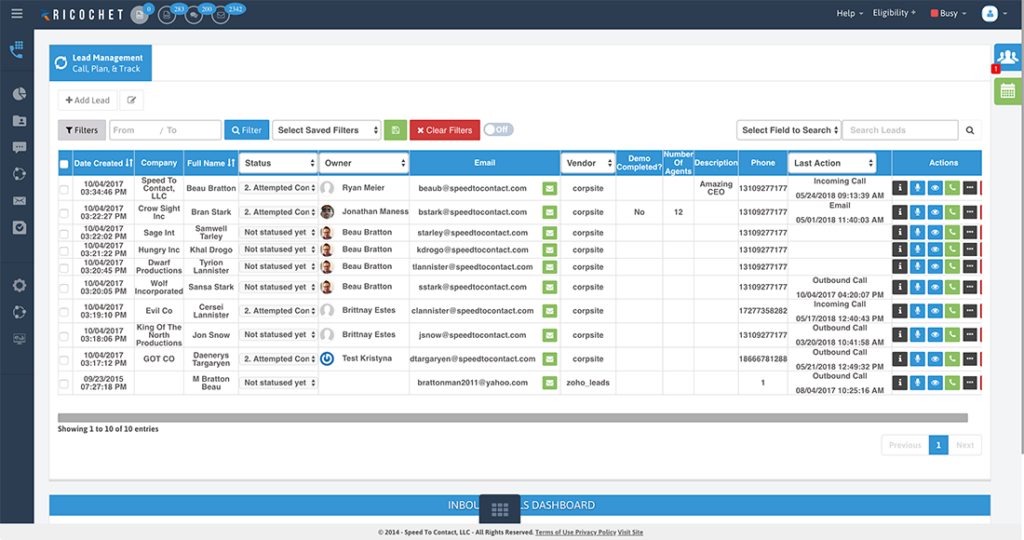Occasionally when we’re out talking to people about our products, we get a puzzled look from someone, expressing “what is a CRM system” or “what is a CRM definition?” CRM, an abbreviation for Customer Relationship Management, dates back to the 1970s when companies began using computers to track interactions with their customers.
CRM Systems for Small Businesses and Enterprises
Most businesses use some form of CRM, whether it be a single-user setup or a true enterprise-class software solution. Originally serving as a basic database for customer names and contact information, systems evolved over the past 40 years to include highly-specialized industry functions, telecommunications interfaces, and extensive data analytics. A quick Google search will reveal thousands of CRM products. Although some solutions provide general customer tracking, many vendors offer industry-specific CRM systems, such as software to handle banking, mortgage, investment, insurance or even automotive industry data. Such vertical market CRM systems can expedite the workflow for their customers.
The Purpose of CRM Systems
The core purpose of a CRM system is to organize and optimize customer information and activities supporting customer relations. That is, the software can store contacts, notes, activities and far more – for customers or prospects. That data can be made accessible to sales teams, support staff, management, accounting departments or anyone else who needs access. A CRM system today is often the hub for a business, driving nearly all marketing, sales, support and accounting operations. It becomes a highly valuable component of the business. So a CRM can serve as lead management, customer service, billing or any number of other functions.
Do You NEED a CRM System?
If your company doesn’t have one already, you may want to consider a CRM system to help you collect valuable business data in a single location, make it accessible to your team across locations and devices. If your team and business are growing, a central customer file system becomes essential. Finding a CRM solution that addresses all your unique requirements can be a daunting task (remember there are thousands of CRM systems!), so develop a wish list of ideas that would streamline your customer management that you use in your evaluations. Once the CRM system is in place, you can focus on serving the needs of your prospects and customers. The CRM system helps you keep better track of the results.
